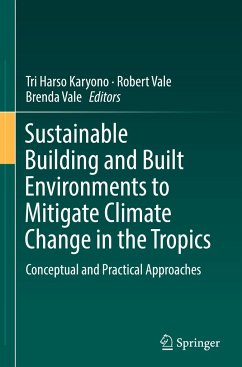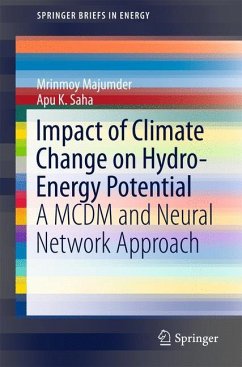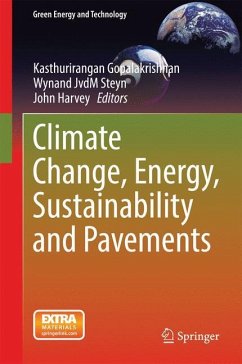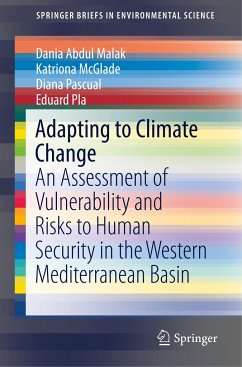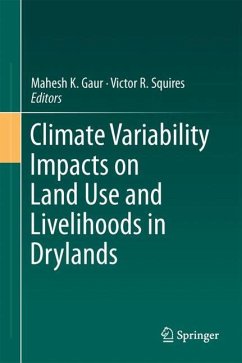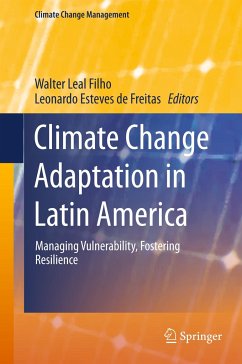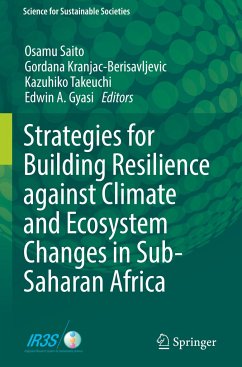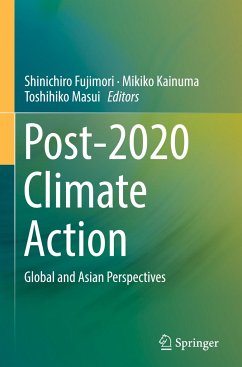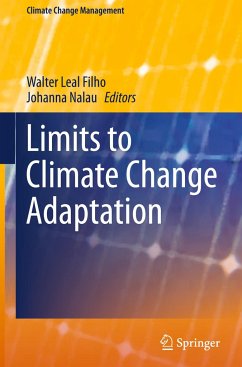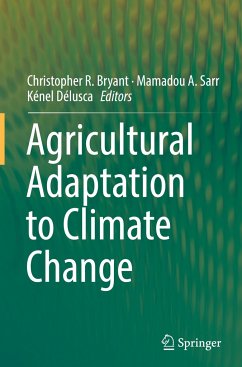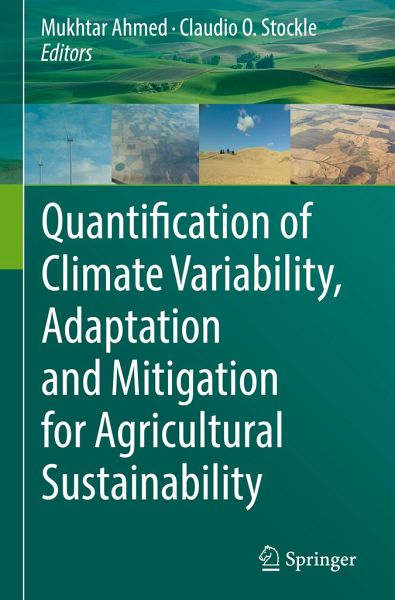
Quantification of Climate Variability, Adaptation and Mitigation for Agricultural Sustainability

PAYBACK Punkte
38 °P sammeln!
This book is a comprehensive volume dealing with climate change impacts on agriculture, and which can help guide the redesign of agricultural management and cropping systems. It includes mitigation techniques such as use of bioenergy crops, fertilizer and manure management, conservation tillage, crop rotations, cover crops and cropping intensity, irrigation, erosion control, management of drained wetlands, lime amendments, residue management, biochar and biotechnology. It also includesManagement of GHG emissionsCrop models as decision support toolsQTL analysisCrop water productivityImpacts of ...
This book is a comprehensive volume dealing with climate change impacts on agriculture, and which can help guide the redesign of agricultural management and cropping systems. It includes mitigation techniques such as use of bioenergy crops, fertilizer and manure management, conservation tillage, crop rotations, cover crops and cropping intensity, irrigation, erosion control, management of drained wetlands, lime amendments, residue management, biochar and biotechnology. It also includes
Management of GHG emissions
Crop models as decision support tools
QTL analysis
Crop water productivity
Impacts of drought on cereal crops
Silvopastoral systems
Changing climate impact on wheat-based cropping systems of South Asia
Phosphorous dynamics under changing climate
Role of bioinformatics The focus of the book is climate change mitigation to enhance sustainability in agriculture. We present various kinds of mitigation options, ways to minimize GHG emissions and better use of the latest techniques in conservation and environmental-sustainability.
Management of GHG emissions
Crop models as decision support tools
QTL analysis
Crop water productivity
Impacts of drought on cereal crops
Silvopastoral systems
Changing climate impact on wheat-based cropping systems of South Asia
Phosphorous dynamics under changing climate
Role of bioinformatics The focus of the book is climate change mitigation to enhance sustainability in agriculture. We present various kinds of mitigation options, ways to minimize GHG emissions and better use of the latest techniques in conservation and environmental-sustainability.



